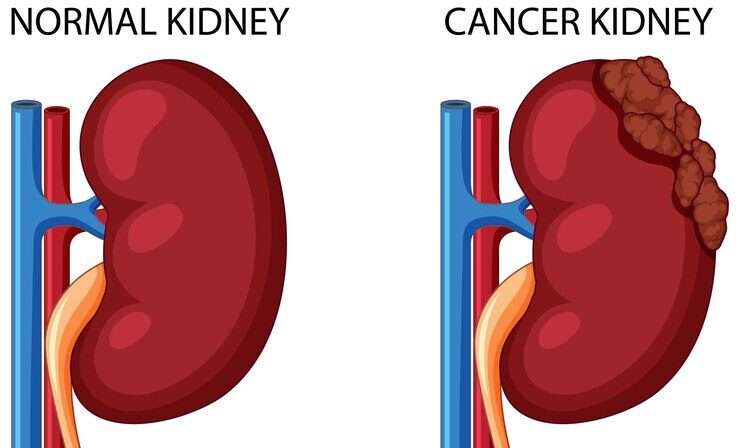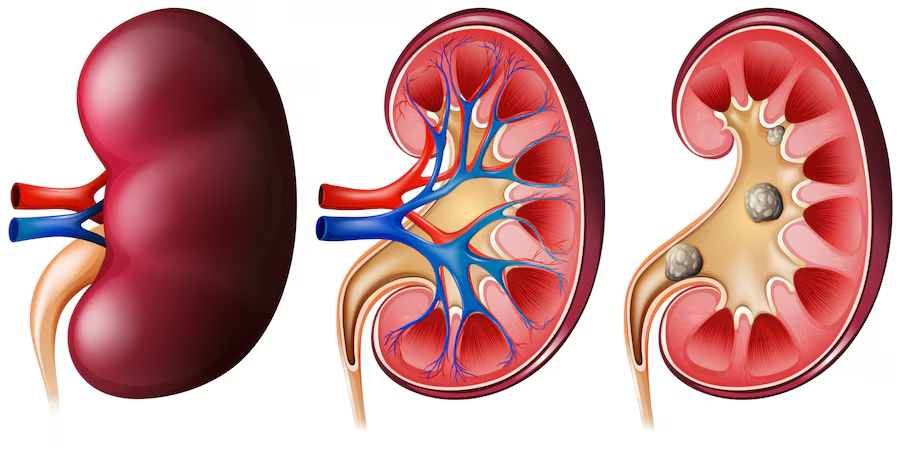Table of Contents
ToggleIntroduction
Kidney disease can go unnoticed until it becomes a serious problem. Since kidneys filter waste and regulate fluid balance, keeping them healthy is essential. This post offers practical tips to help you prevent kidney disease and take control of your kidney health.
Understanding Kidney Disease
Kidney disease can vary significantly in its severity, but it generally refers to conditions that impair the kidney’s functionality. The main forms include:
- Chronic Kidney Disease (CKD): A progressive condition where kidney function deteriorates over time.
- Acute Kidney Injury: A sudden decline in kidney function, often reversible with prompt treatment.
Did you know? Approximately 37 million Americans are affected by chronic kidney disease, highlighting the need for awareness and preventative measures.
Common Causes of Kidney Disease

To effectively prevent kidney disease, it’s important to understand its most common risk factors:
- Diabetes: High blood sugar levels can cause damage to blood vessels in the kidneys.
- Hypertension: High blood pressure can strain the kidneys, leading to CKD.
- Heart Disease: Conditions affecting heart health can detrimentally influence kidney function.
- Genetics: The risk can be increased by a family history of kidney disease.
Understanding this context allows individuals to take better preventive action. Let’s explore tangible steps to protect your kidney health more effectively.
Healthy Lifestyle Choices

Dietary Adjustments
The food we consume directly affects kidney health. Adopting a kidney-friendly diet is a proactive measure to prevent disease. Here are some dietary tips:
Limit Sodium Intake: High sodium can lead to elevated blood pressure.
- Target a daily intake of less than 2,300 mg.
Control Protein Consumption: Too much protein can stress kidneys.
- Opt for lean proteins like chicken and fish in controlled portions.
Stay Hydrated: Drinking ample water helps the kidneys filter waste.
- A rule of thumb is to drink at least 8 cups (64 oz) of water daily.
Regular Exercise
Physical activity boosts overall health, including kidney function. Regular exercise can help maintain a healthy weight, lower blood pressure, and reduce the risk of diabetes.
Tip: Make sure to exercise for at least 150 minutes of moderate aerobic activity every week, such as walking, swimming, or cycling.
No Smoking, Moderate Alcohol
Smoking can damage blood vessels and decrease blood flow to the kidneys, leading to complications. Quitting smoking and moderating alcohol intake can significantly reduce risks.
- Quitting Smoking: Seek support groups or cessation programs.
- Alcohol Guidelines: Limit one drink per day for women and two for men.
Monitoring Health Metrics

Regular Check-ups
Routine health screenings can catch potential issues early. Specifically, monitor:
- Blood Pressure: Keep it below 130/80 mmHg.
- Blood Sugar Levels: Diabetics should strive for an A1C level below 7%.
- Cholesterol Levels: Regular lipid panels can help manage levels effectively.
Routine Blood Tests
Engaging in regular blood tests can assess kidney function by checking levels of creatinine and blood urea nitrogen (BUN). Early detection allows for timely interventions.
Managing Existing Conditions

If you have existing health issues like diabetes or hypertension, effective management is crucial to prevent kidney damage.
Diabetes Management
- Keep blood sugar levels within target ranges.
- Work closely with healthcare providers for personalized management plans.
- Consider diabetes education programs for better self-management.
Control Blood Pressure
- Use prescribed medications as directed.
- Practice a low-sodium diet as detailed previously.
- Engage in physical activities tailored to your lifestyle.
Staying Informed and Engaged
Knowledge is a powerful tool in the prevention of kidney disease. Here are some resources:
- National Kidney Foundation: Offers valuable resources and information about kidney health.
- American Diabetes Association: A great resource for managing diabetes and its impact on kidney health.
- Engagement Prompt: What steps have you taken to support your renal health? Leave your experiences and tips in the comments section below!
Conclusion
Preventing kidney disease involves a collective effort to make sound lifestyle choices, monitor health metrics, and manage existing conditions. With nearly half of all individuals with kidney disease being unaware they have it, vigilance is key. By prioritizing your kidney health today, you can enjoy a healthier tomorrow.
Schedule a check-up, re-evaluate your diet, and engage in regular physical activity. Your kidneys will thank you for it!
This guide intends to inform you about kidney disease and equip you with actionable tips to maintain optimal kidney health while looking after your overall well-being. Remember, when it comes to health, prevention is always better than cure!
